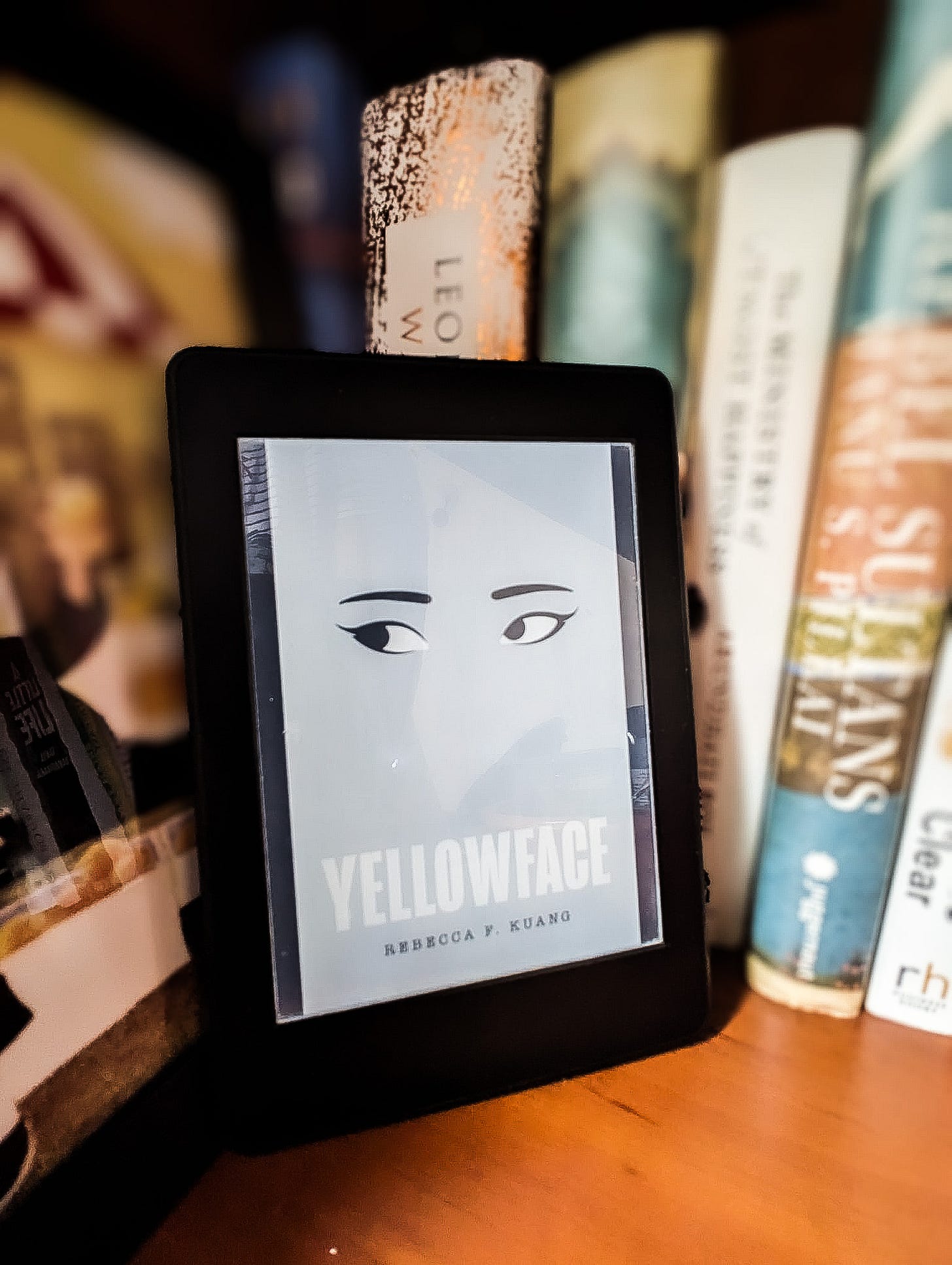Book Summary-
Yellowface is a fictional work about two friends; Athena Liu, a bestselling writer of multiple books on the Asian diaspora and June Hayward, a struggling writer whose only debut novel hardly made a blip and has long been forgotten.
What happens when Athena meets an unfortunate end in her posh apartment while celebrating a Netflix deal with June? In the same apartment where, minutes before her death, Athena shows June the manuscript of her new book, a book about the unsung contributions of Chinese labourers in World War 1 that even her editor or agent is unaware of. In the chaos that follows Athena’s death, June whisks away the manuscript from her friend’s apartment.
After making several edits, June later sends the manuscript to her agent and from there on, what follows is a roller coaster ride. The book is published to huge acclaim under the author’s name Juniper Song, June’s middle name given to her by her hippie mother, which the publishers conveniently use to obfuscate the writer's ethnicity. After all, how can a white woman tell Asian stories authentically? It makes it to the New York Times best-seller list. June becomes the latest literary darling. Just as June feels she has gotten away with her lie, questions arise on Twitter and other blogging platforms on the book’s provenance.
Was June wrong in thinking she was the only person aware of Athena’s latest manuscript? Could this lead to the end of her short-lived foray into success? How far will she go to keep her lie hidden?
My Thoughts and Book Quotes-
I am a reader who loves listening to Author interviews- How they came up with a concept, What their writing routine looks like, How they deal with writing blocks, What inspired them to come up with the book's title, What their earliest recollection of writing was, Did they write a book while having a full-time job, Why the same book can sometimes have a different title etc. Some of my favourite podcasts for author interviews are “Writer’s Routine” by Dan Simpson and “Quick Book Reviews” by Philippa Hall. I find that listening to an author of the book I enjoyed reading enhances my literary experience and appreciation for the book.
Reading ‘Yellowface’ brought to light another part of a book’s or author’s journey - The transition from a completed manuscript to a saleable commodity with the potential to make it to bestseller lists and win coveted prizes/awards.
In the running up to making a book saleable, the author becomes a commodity too. Their social media profile, political views, and even possibly looks matter to make or break a book. They become a reality tv contestant.
“Editors go in and mess around with your words, your vision. Marketing and publicity make you distill hundreds of careful, nuanced reflection into cute, tweet-size talking points. Readers inflict their own expectations, not just on the story, but on your politics,your philosophy, your stance on all things ethical. You, not your writing, become the product- your looks, your wit, your quippy clapbacks and factional alignments with online beefs that no one in the real world gives a shit about.”
― R.F. Kuang, Yellowface
And if they fail to rise to the flimsy pedestal they have been lifted up to, the internet will be ruthless in bringing them down- even people or accounts who have no idea what the uproar is all about.
“Most of the accounts that participate so clearly do not care about the truth. They’re here for the entertainment. These people love to have a target, and they’ll tear apart anything you put in front of them.”
― R.F. Kuang, Yellowface
Through this story, we also learn how the publishing industry sometimes limits writers to telling only certain types of stories based on their race or ethnicity.
“Every time she tried to branch out to new projects, they kept insisting that Asian was her brand, was what her audience expected. They never let her talk about anything other than being an immigrant, other than the fact that half her family died in Cambodia, that her dad killed himself on the twentieth anniversary of Tiananmen. Racial trauma sells, right? They treated her like a museum”
― R.F. Kuang, Yellowface
The author holds up a mirror to the publishing industry and even to us, the readers, the Twitterati, the bloggers, and the armchair activists who are quick to judge, dismiss, taunt or cancel, sometimes just based on tweets that offer no context or nuance. Narrated in first person by June, an unreliable narrator, it is a fast-paced thriller that will leave you equally entertained and uncomfortable by the questions it raises about tokenism, racism, and cultural appropriation in the world of book publishing.
Have you read this book yet? What did you think of it?
-Anju



